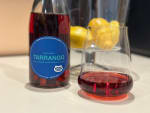WSET3 Palate Notes
Tastes Like:
Muscat Blanc à Petit Grains is a renowned grape variety celebrated for its aromatic qualities and historical significance in winemaking. Originating from the Mediterranean region, it is esteemed for producing a wide range of wines from dry to sweet.
In Hungary, Muscat Blanc à Petit Grains is known as “Sárgamuskotály,” which translates to “Yellow Muscat” in English. This variety is widely grown in Hungary, particularly in the Tokaj region, where it is used to produce both dry and sweet wines, including the famous Tokaji Aszú dessert wines.
What you can expect to taste and smell?
Muscat Blanc à Petit Grains wines are highly aromatic, offering intense floral notes of orange blossom, jasmine, and rose petals. They are also characterized by fruity aromas of ripe apricot, peach, and citrus fruits like lemon and orange.
Cool vs. Warm Climate
Cool Climate: In cooler climates, Muscat Blanc à Petit Grains retains higher acidity levels, which accentuate its floral and citrus aromas. The wines tend to be lighter in body with a more pronounced acidity, offering a refreshing profile.
Warm Climate: Warmer climates enhance the grape’s ripening process, intensifying the fruit flavors and promoting higher sugar levels. This results in richer, fuller-bodied wines with a more luscious sweetness and a softer acidity.
Appellations / Producers of Note
France: Muscat de Beaumes-de-Venise from the Rhône Valley is a notable appellation producing sweet wines from Muscat Blanc à Petit Grains.
Italy: Asti and Moscato d’Asti from Piedmont are renowned for their sparkling wines made from Muscat Blanc à Petit Grains, known locally as Moscato Bianco.
Greece: Island of Samos and its vin Doux are well known for good value wines.
Australia: Rutherglen in Victoria produces fortified wines such as Muscat and Tokay, where Muscat Blanc à Petit Grains plays a significant role.
Age-worthiness
Muscat Blanc à Petit Grains wines are often enjoyed young to appreciate their vibrant fruit flavors and aromatic intensity.
Some styles, particularly fortified wines like Muscat de Beaumes-de-Venise and Rutherglen Muscat, can age beautifully, developing complex flavors of dried fruits, honey, and nuts over time.
First Published: Monday, Jun 10, 2024 Last updated: Jun 10, 2024
If you're a wine enthusiast like me ... follow my adventures, learn about grapes or winemaking.
read more




